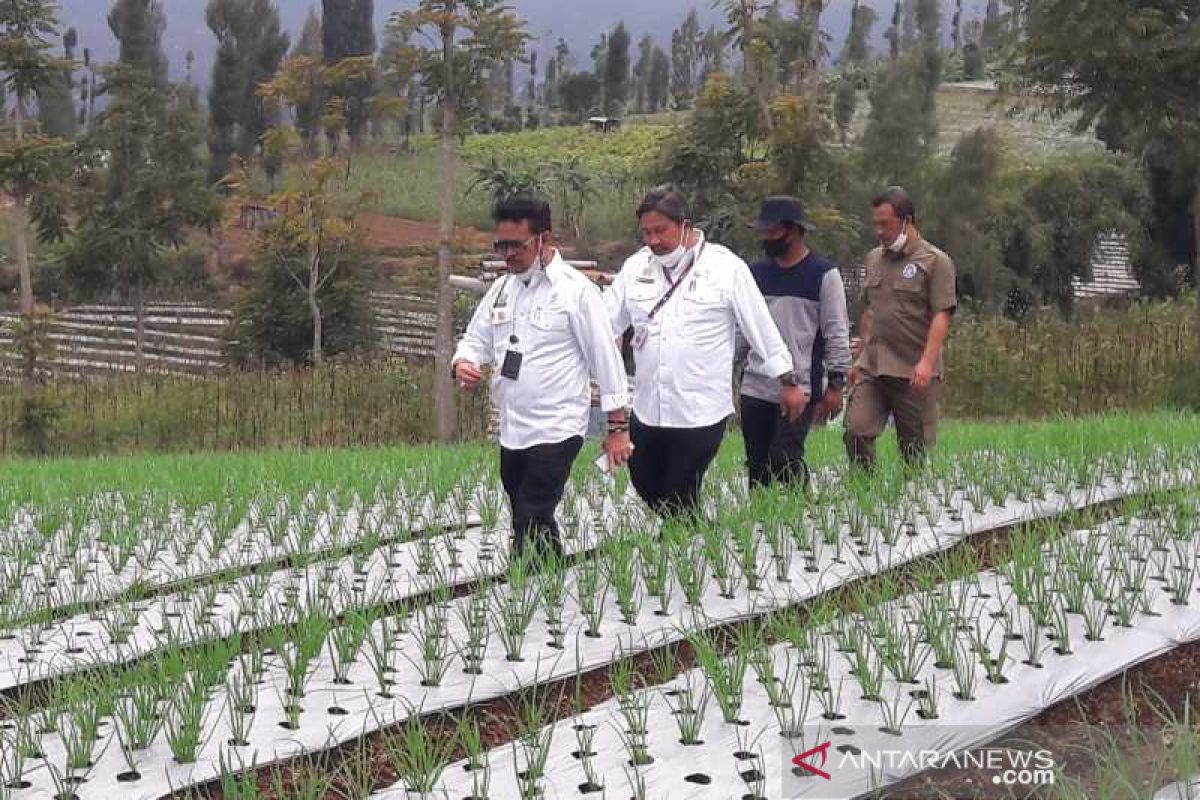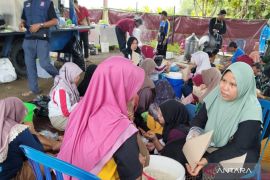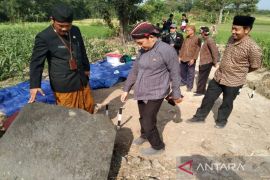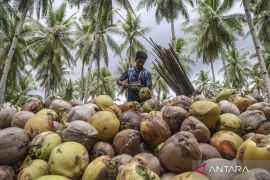"The development of these food estates is not only for Temanggung and Wonosobo, but will be a model for Indonesia," Limpo remarked after reviewing land for food estates in Bansari sub-district, Temanggung, on Thursday.
Through the food estates, development in food and agriculture can be made, he said. This would allow farmers to improve their lives and welfare as well as ascertain their activities, he added.
"Temanggung and Wonosobo should be able to model for that (food estate). This area was chosen because it is the best in Indonesia, so maintain it," Limpo remarked.
Related news: Agriculture Ministry to build 2,358 horticultural villages by 2022
According to the minister, food grown in the estates will not only be intended to serve domestic needs, but could probably be channeled for exports.
"We can export to the United States and India. Do not let us import onions, but we have our own onions in the country," he said.
Director general of horticulture at the Ministry of Agriculture, Prihasto Setyanto, pointed out there are several off-takers or integrators in the food estates: PT Semangat Bersama Entrepreneurship, PT Calbee Wings Food, CV Sido Makmur Jaya, and CV Rejeki Terus Lancar.
The Temanggung food estate system is spread over 339 hectares across five sub-districts—Bansari, Kledung, Ngadirejo, Parakan, and Bulu, he said. The horticultural plants grown there comprise chilis, potatoes, onions, and garlic, he informed.
Based on an analysis of the food estates' production potential, onion cultivation can generate a profit of around Rp23 million per hectare, garlic Rp40 million, chilies Rp55 million, and potatoes Rp187 million, Setyanto said.
"With the food estate system, there is an increase in production and profit because of the 40 percent efficiency in labor cost," he added.
Related news: Chief economic minister defends ban on horticultural imports
Related news: Ministry introduces innovation of post-harvest horticultural commodity handling
Translator: Heru S, Kenzu T
Editor: Suharto
Copyright © ANTARA 2021












